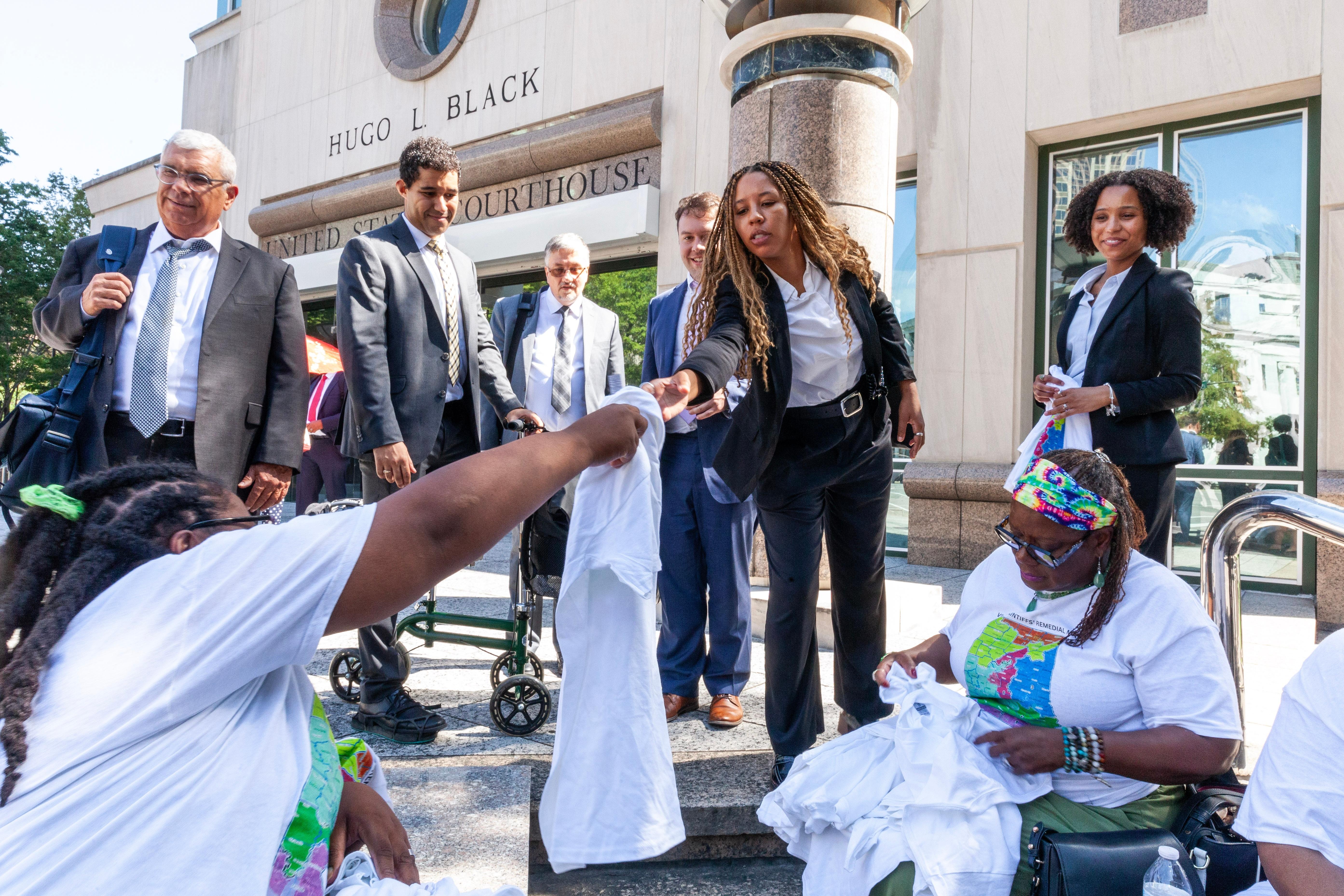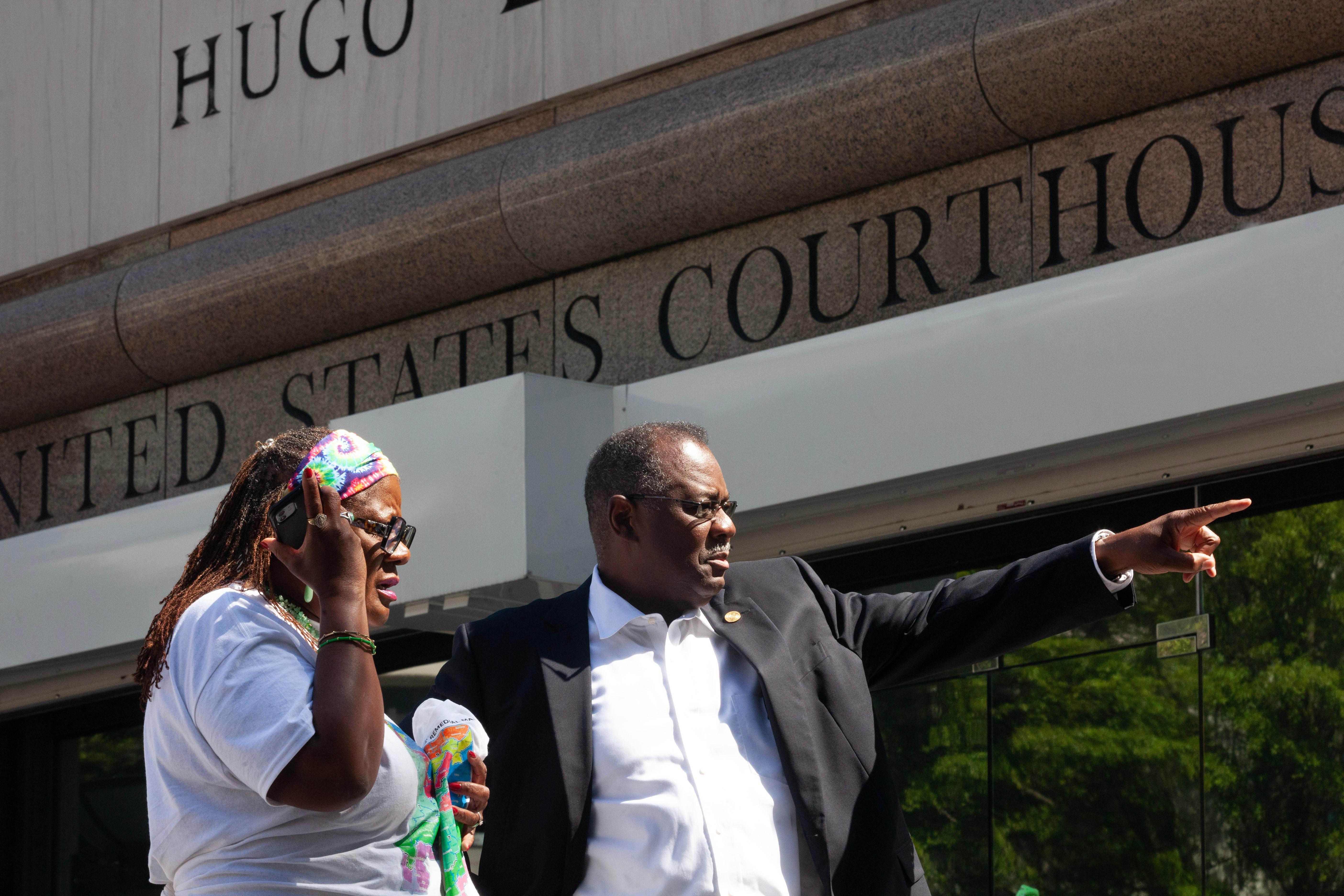Alabama’s justification for ignoring the U.S. Supreme Court’s directive to create two majority Black congressional districts? A new map and new rules mean the court’s order no longer matters.
Attorneys representing Alabama defended the state before a three-judge panel Monday at the Hugo L. Black United States Courthouse in Birmingham. That same panel ruled in 2021 that Alabama’s congressional map violated the Voting Rights Act by diluting the voting power of Black voters.
The federal judges ordered Alabama to draw up a new map, creating two districts that are majority Black or “something quite close to it.” That was delayed until the Supreme Court could weigh in, which it did last June— upholding the lower court’s ruling.
But when Alabama lawmakers passed a new map, it did not have the two ordered majority-Black districts. In one, just over 50% of the voting-age population is Black. In another district, the percentage is 39.9%.
Lawmakers created the map with a new law and passed new standards for drawing a congressional map. Alabama Solicitor General Edmund LaCour argued Monday that the 2023 map should not be judged by the court order, but instead by the new standards — compact districts, splitting as few counties as possible and, the one the state leaned on to defend the new map, keeping “communities of interest” together.
The 2023 map does not split up the city of Montgomery like the old one did, the Black Belt isn’t carved up to the same degree, and Alabama’s coastal communities also stay together — unlike in alternative maps previously presented by the plaintiffs’ teams.
The judges, however, did not appear favorable to the state’s arguments. They repeatedly questioned what weight, if any, the legislature put on the court’s order.
“What I hear you saying is that the state of Alabama deliberately ignored our instruction to draw two majority-Black districts or one where a minority candidate could be chosen,” Judge Terry Moorer said.
LaCour said considering race as the main factor for redrawing a map would be illegal.
“It is not mere race consciousness. It’s race predominance. And that’s unlawful,” LaCour said. “This is as close as you can get without violating the Constitution.”





